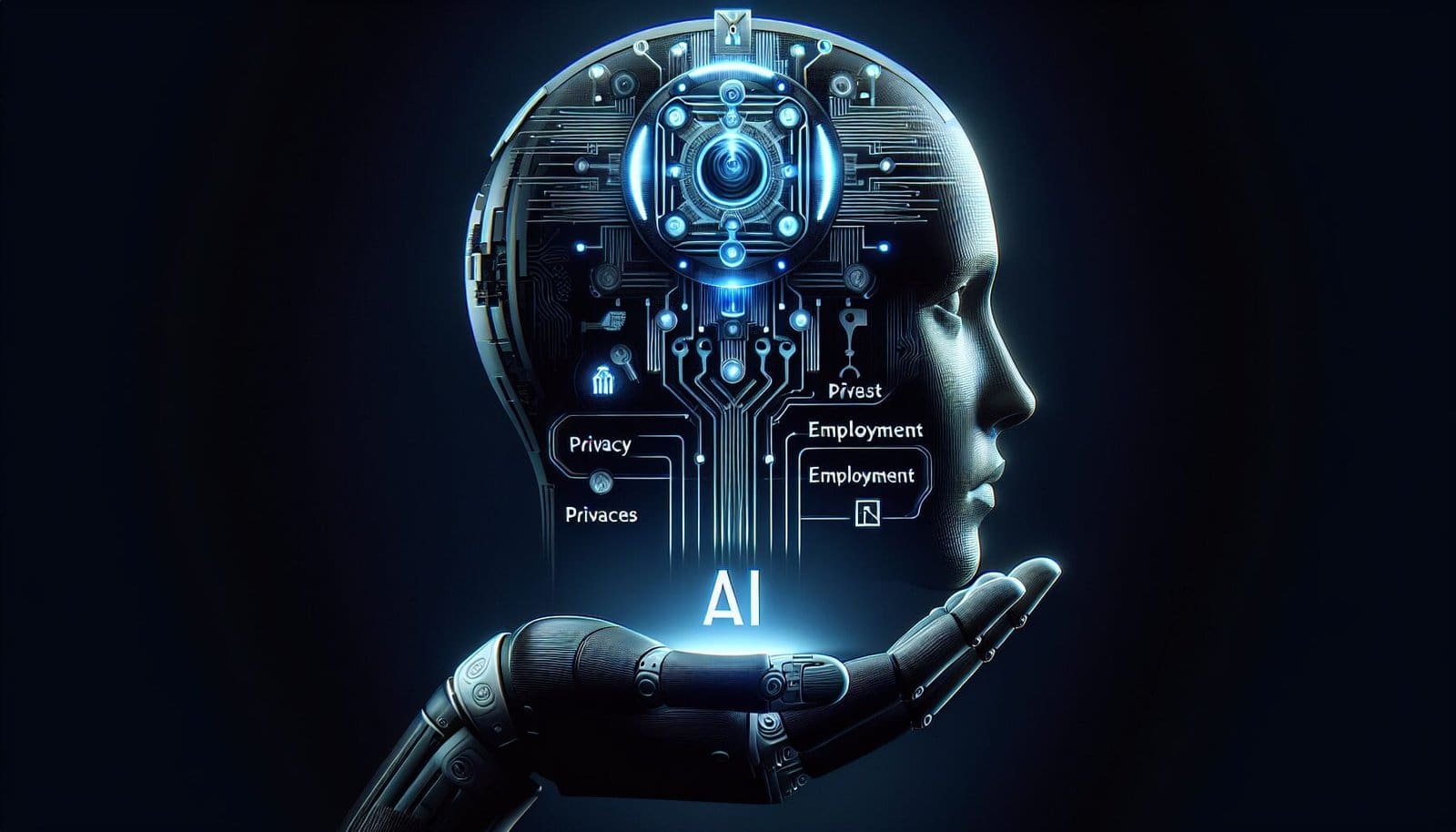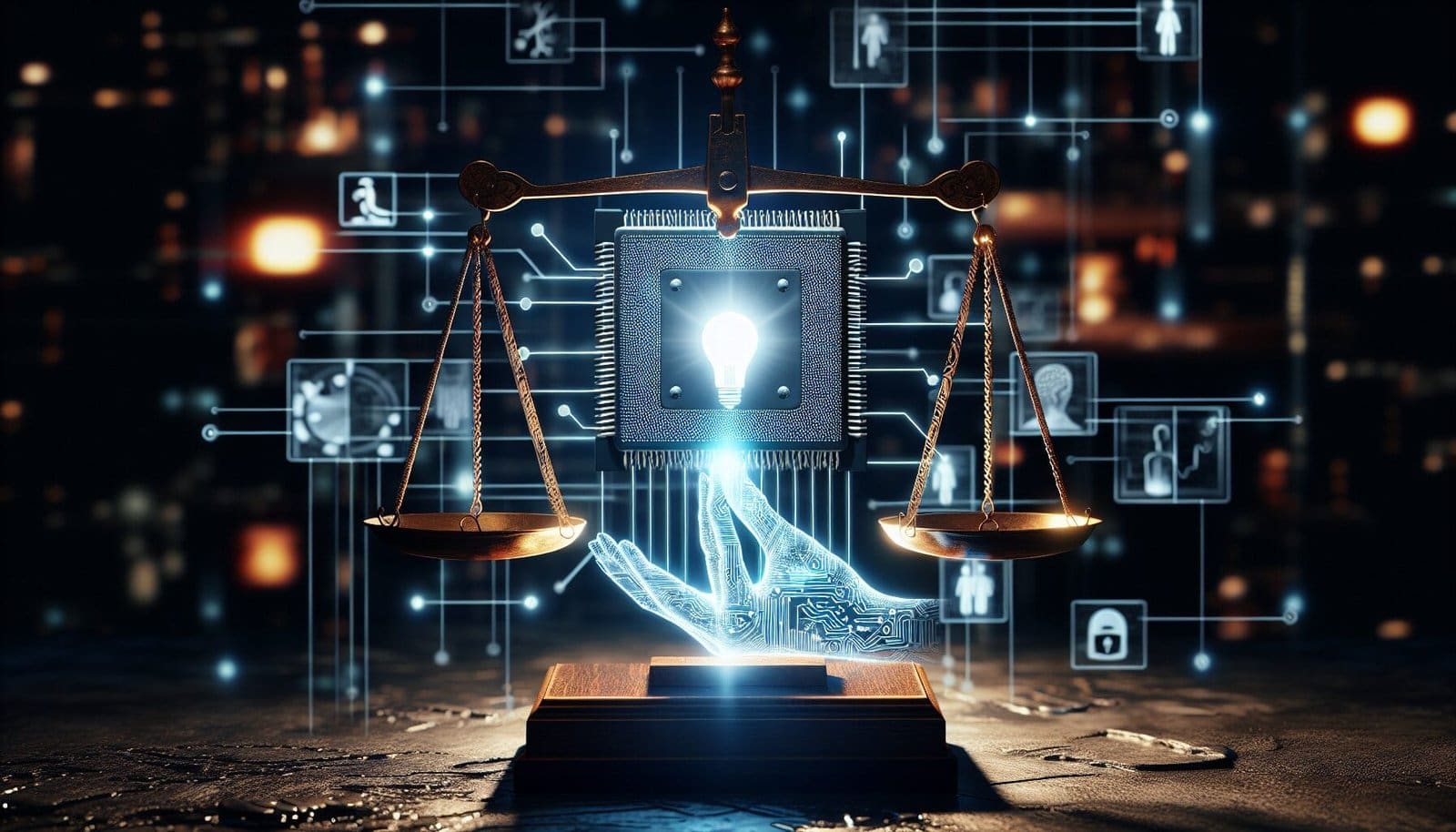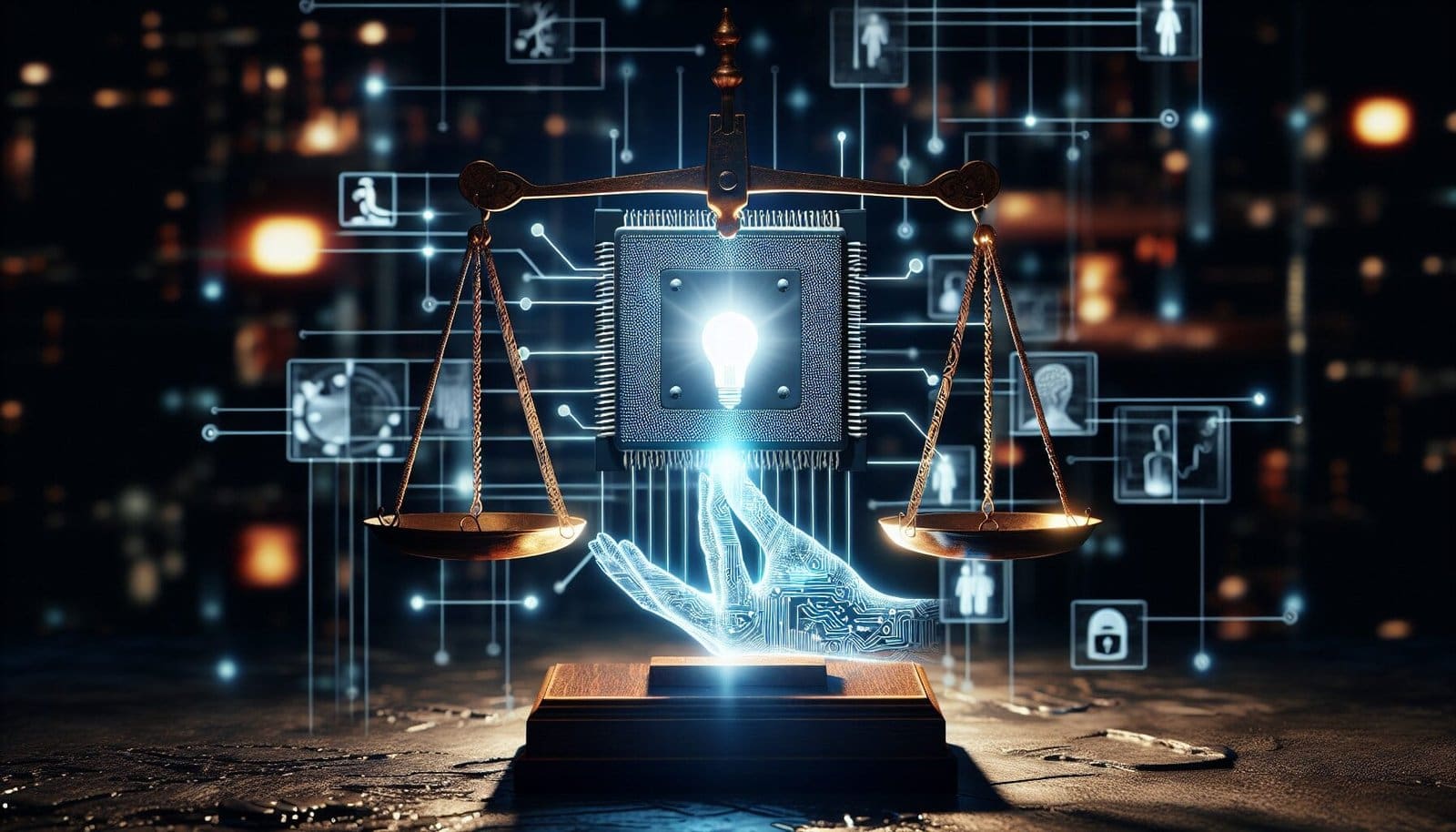Artificial Intelligence (AI) has become an integral part of our lives, revolutionizing the way we interact with technology and transforming various industries. However, as AI continues to advance at an unprecedented pace, it brings along a myriad of ethical implications that demand our attention. In this article, we will delve into the complex world of AI ethics, exploring the potential risks and concerns surrounding AI's impact on privacy, bias, and human decision-making. Join us on this insightful journey as we navigate through the ethical challenges that shape our AI-driven future.
Exploring the Ethical Implications of Artificial Intelligence
Artificial intelligence (AI) has undoubtedly revolutionized various aspects of our lives, from improving efficiency in industries to enhancing our daily interactions with technology. However, the rapid advancement of AI has also brought about a range of ethical considerations that need to be carefully addressed. In this article, we will delve into various ethical implications surrounding AI and highlight key areas of concern.

1. Ethical Considerations in the Development of AI
1.1. Responsible AI Design
As AI systems become more prevalent and integrated into various sectors, responsible AI design becomes paramount. It entails ensuring that AI is developed and deployed in a manner that takes into consideration the potential impacts on individuals, society, and the environment. Responsible AI design involves addressing issues such as algorithmic transparency, bias mitigation, and adherence to ethical standards throughout the development process.
1.2. Bias and Discrimination
One of the most pressing concerns in AI development is the inadvertent reinforcement of bias and discrimination. AI algorithms are trained using datasets that may reflect existing biases in society, leading to biased decision-making. Recognizing and mitigating these biases is essential to ensure fairness and equal treatment in automated systems.
1.3. Privacy and Data Protection
The proliferation of AI often relies heavily on the collection and analysis of vast amounts of personal data. This raises concerns regarding privacy and data protection. It is crucial to implement robust safeguards to protect individuals' sensitive information from unauthorized access and misuse.
1.4. Transparency and Explainability
AI systems, particularly those employing deep learning algorithms, can be highly complex and difficult to understand. The lack of transparency and explainability can undermine trust in AI decision-making processes. Ensuring transparency and providing explanations for AI-generated outcomes is crucial to promote accountability, gaining the trust of both individuals and organizations.
2. The Impact of AI on Employment and Workforce
2.1. Automation and Job Displacement
The increasing automation facilitated by AI has raised concerns about potential job displacement. While AI technology may replace routine and repetitive tasks, it can also create opportunities for workers to focus on more complex and creative endeavors. However, there is a need for thoughtful planning to ensure a smooth transition for those affected by job displacement.
2.2. Job Creation and Transformation
Contrary to popular belief, AI has the potential to create new jobs and transform existing ones. By automating certain tasks, AI can free up human workers to engage in higher-value activities that require creativity, critical thinking, and empathy. To leverage these opportunities, proper reskilling and upskilling programs need to be in place.
2.3. Socioeconomic Inequality
The adoption of AI can exacerbate existing socioeconomic disparities if not properly managed. Access to AI technologies and the skills required to operate them must be democratized to prevent a widening gap between those who have access to AI benefits and those who do not. Efforts should be made to ensure equitable distribution and usage of AI resources.
3. AI in Decision-Making and Accountability
3.1. Autonomous Weapons and Warfare
The development of AI-powered autonomous weapons raises ethical concerns regarding the potential lack of human control and accountability in armed conflicts. The use of AI in warfare must be carefully regulated to avoid the loss of human life and to ensure adherence to international humanitarian laws.
3.2. AI in Legal Systems
AI technologies are increasingly being utilized in legal systems for tasks such as predictive analytics, evidence analysis, and risk assessment. However, the use of AI in legal decision-making raises questions about the potential for biased outcomes and the need for human oversight to uphold principles of justice and fairness.
3.3. Ethical Implications of AI in Healthcare
AI holds great promise for revolutionizing healthcare by improving diagnostics, treatment, and personalized medicine. However, important ethical considerations arise concerning patient privacy, consent, and the potential for AI to make life or death decisions. Ensuring the ethical use of AI in healthcare is crucial to protect patient autonomy and well-being.
4. AI and Human Bias
4.1. Inherent Bias in AI Systems
AI systems are not immune to the biases present in the data they are trained on. This can result in perpetuating existing social biases and discrimination. Recognizing the limitations and potential biases in AI systems is essential to minimize and mitigate their negative impacts.
4.2. Mitigating Bias and Fairness in AI
Addressing biases in AI systems requires proactive measures such as diverse training data, regular bias audits, and algorithms that are designed to prioritize fairness. Additionally, involving individuals from diverse backgrounds in the development and testing of AI systems can help identify and mitigate potential biases.

5. Potential Threats and Risks of AI
5.1. Superintelligence and Existential Risk
The development of superintelligent AI systems raises concerns about their potential to surpass human intelligence and control. Safeguarding against the risks associated with superintelligent AI, such as the loss of control or unintended consequences, requires ongoing research and the establishment of robust safeguards.
5.2. Surveillance and Intrusion
The widespread adoption of AI-powered surveillance technologies can threaten individual privacy and civil liberties. Striking a balance between the benefits of surveillance and the protection of personal privacy is crucial to prevent undue intrusion and potential abuse of power.
5.3. AI Misuse and Malevolent Use Cases
AI technology can also be misused for nefarious purposes, ranging from cybercrime to disinformation campaigns. Ensuring stringent regulations, ethical frameworks, and oversight is necessary to prevent malicious use cases and to safeguard societal well-being.
6. Ethical Frameworks for AI
6.1. Utilitarianism
Utilitarian ethics focuses on maximizing overall societal welfare and well-being. In the context of AI, this approach emphasizes AI development and deployment that leads to the greatest benefit for the majority.
6.2. Deontological Ethics
Deontological ethics focuses on adhering to moral duties and principles. In the context of AI, this approach emphasizes the development and use of AI systems that respect individual rights, privacy, and dignity.
6.3. Virtue Ethics
Virtue ethics focuses on cultivating moral character and virtues. In the context of AI, this approach emphasizes the development and deployment of AI systems that embody virtues such as fairness, transparency, and accountability.
6.4. Rights-based Ethics
Rights-based ethics emphasizes the protection of individual rights and freedoms. In the context of AI, this approach emphasizes the development and deployment of AI systems that uphold and respect human rights, such as privacy and autonomy.
6.5. Ethical Relativism
Ethical relativism acknowledges that ethical principles may vary across different cultures and contexts. In the context of AI, this approach emphasizes the need for cultural sensitivity and adaptability to ensure ethical AI development and deployment.
6.6. Altruism and AI
The concept of altruism focuses on acting in the best interest of others. In the context of AI, this approach emphasizes the ethical development and use of AI systems that prioritize societal well-being and benefit rather than individual or corporate gain.
7. AI and Human Autonomy
7.1. Human Control and Autonomy
Preserving human control and autonomy in the development and deployment of AI is crucial to prevent undue influence and maintain human agency. AI systems should be designed to augment human capabilities, enhance decision-making, and respect individual autonomy.
7.2. AI and Manipulation
AI has the potential to manipulate human behavior through personalized recommendations and advertisements. Ethical considerations must be given to the responsible use of AI to avoid exploiting individuals for commercial or political gain.
7.3. AI in Social Interactions
As AI becomes more prevalent in social interactions, concerns arise regarding the potential for AI systems to deceive or manipulate individuals. Establishing clear guidelines and transparency in the use of AI in social interactions is essential to maintain trust and ethical conduct.
8. AI and Privacy Concerns
8.1. Data Collection and Surveillance
The extensive collection and analysis of personal data by AI systems raise privacy concerns. Striking a balance between the benefits of data-driven AI and the protection of individual privacy is crucial to maintain public trust and ensure ethical practices.
8.2. Facial Recognition and Privacy
The widespread use of facial recognition technology raises concerns about privacy and potential misuse. Establishing guidelines and regulations for facial recognition technology is essential to protect individual privacy rights and prevent unwarranted surveillance.
8.3. Consent and User Rights
Ensuring clear consent mechanisms and user rights regarding the collection and use of personal data by AI systems is crucial to respect individual autonomy and protect privacy. Transparent disclosure of data usage policies and user control over their data are vital considerations in AI development.
10. AI and the Future of Humanity
10.1. Ethical Considerations in AI Development
As AI continues to advance, ethical considerations must remain at the forefront of development efforts. Conducting ethical impact assessments and implementing ethical guidelines can help ensure the responsible development and deployment of AI.
10.2. Humanizing AI
Efforts should be made to humanize AI systems by incorporating ethical principles and values. Designing AI to exhibit empathy, fairness, and transparency can help foster trust and positive collaboration between humans and machines.
10.3. Aligning AI with Human Values
Central to the ethical implications of AI is the alignment of AI development with human values and goals. Ethical decision-making frameworks should be utilized to guide the development and deployment of AI systems that prioritize human well-being and societal benefit.
In conclusion, exploring the ethical implications of artificial intelligence is a crucial step in ensuring the responsible development and deployment of AI technologies. Addressing issues such as bias and discrimination, privacy concerns, accountability, and human autonomy is fundamental to harnessing the benefits of AI while mitigating potential risks and harms. By implementing robust ethical frameworks and stakeholder engagement, we can navigate the evolving landscape of AI ethically and contribute to a more inclusive and sustainable future.








